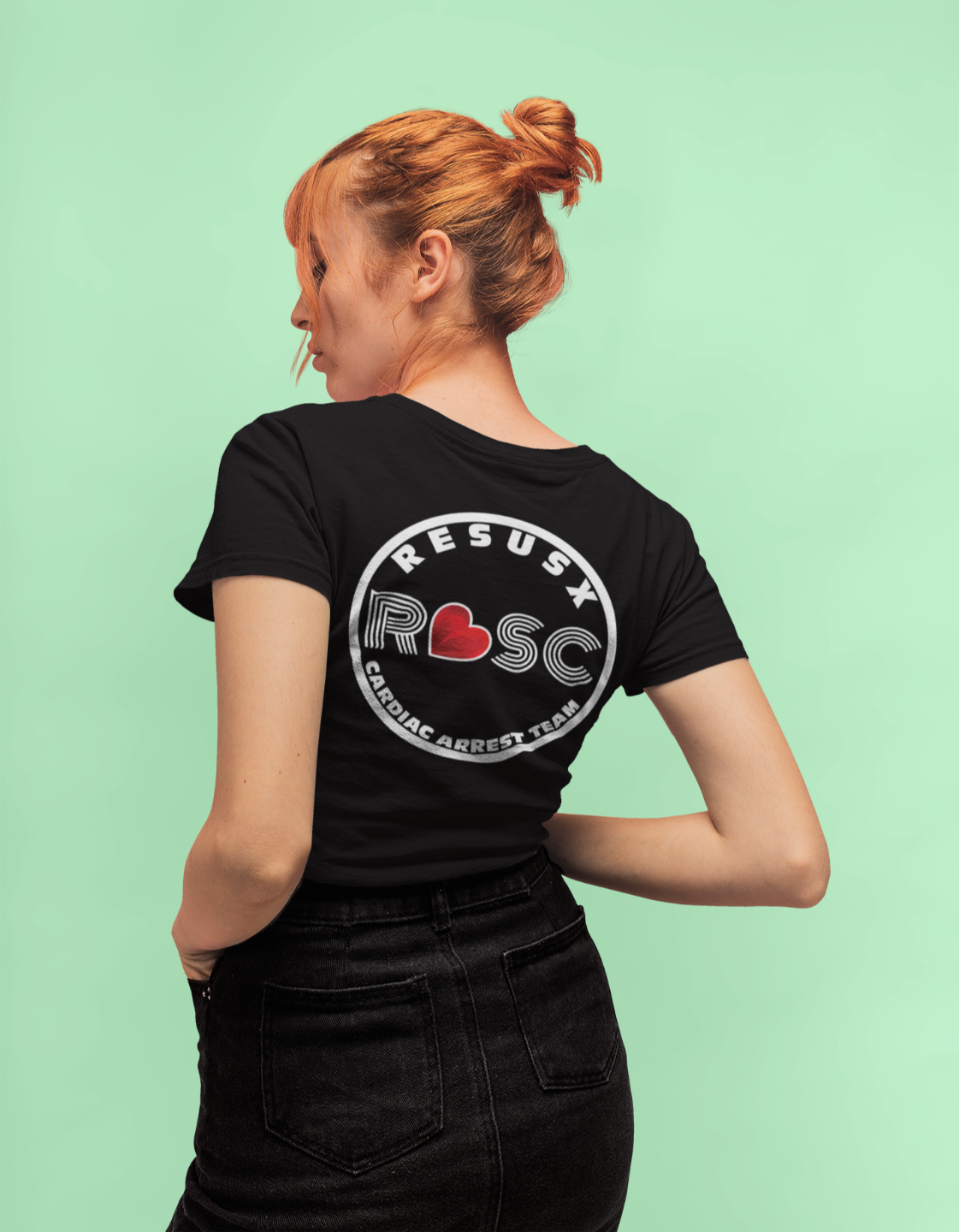
The Educational Newsletter From CriticalCareNow!
Welcome to this week's newsletter. We've got a ton of stuff to cover with you, so let's get right to it.
- Is a-fib bad in shock or is it a marker of something else?
- What's the best blood pressure for a patient post-ROSC?
- Do you need platelets before placing a central line with thrombocytopenia?
- Check out the first lecture we're releasing from the ResusX:ROSC conference? (All-Access Members only) This is "Mastering the Monitors" from Scott Weingart.
Let's get ready to get our learn on with this week's review....it's time for Last Week Now!
Is the HR fast because of shock or afib? It can be hard
Have you ever had a septic patient with afib at baseline and now there heart rate is elevated? Well is their heart-rate elevated due to uncontrolled afbi or is it tachycardia for a low stroke volume? This is a tricky situation. If you blindly treat the HR and it is shock the patient could get more hypotensive. If you ignore the HR the patient might develop a tachycardia induced cardiomyopathy.
What to do? Well, you could consider giving a short acting beta blocker like esmolol to see if there is a change in hemodynamics. These situations are hard so watch the video for a full rundown on this.
Check out the video for more information.

Post-Arrest BP
Dr. Rory Spiegel, an EM Critical Care physician, discusses post-arrest care and the optimal blood pressure for patients who have been resuscitated from cardiac arrest. Previous retrospective studies suggested that higher MAPs were associated with better outcomes, but these findings were confounded by the overall health status of the patients. Dr. Spiegel highlights three recent small randomized control trials that compared lower and slightly higher MAP targets but found no significant difference in outcomes. He emphasizes a recently published large randomized trial that investigated blood pressure targets in comatose survivors of cardiac arrest.
Dr. Spiegel questions the effectiveness of identifying an ideal MAP for specific patient populations, citing previous studies in sepsis and other conditions that have failed to determine an optimal blood pressure target. He explains that MAP, although commonly used as a surrogate for perfusion, does not accurately represent micro-hemodynamics. Different organs have varying resistance, affecting their perfusion, and disease states can further complicate the relationship between macro-circulation and microcirculation.
Overall, Dr. Spiegel suggests that while MAP is frequently measured and easily accessible, it may not be the best indicator of perfusion. He highlights the need to consider micro-hemodynamics and individual organ perfusion in each patient's management.
Check out his amazing video now!
To Transfuse or Not To Transfuse?
We've featured @NickMark before, but he's back with a new podcast that you have to check out called Critical Care Time. Their second episode attempts to tackle the issue of whether platelets are required for central venous line placement in thrombocytopenia. This episode comes complete with a great infographic summarizing the data. Check it out now!
⁉️Should you transfuse platelets before central line placement in people w/ thrombocytopenia?
— Critical Care Time (@CritCareTime) July 19, 2023
🚨Check out the latest episode of Critical Care Time - a journal club where @nickmmark @Askins_Razor discuss the recent NEJM RCT
🎧 https://t.co/On99DjItJM
1/ pic.twitter.com/crvBtL4B5F

Get The Official ResusX:ROSC T-Shirt
If you don't have one of these soft and comfortable ResusX t-shirts then you are missing out. Not only does this t-shirt tell everyone in the room that you are part of the cardiac arrest team, but you are also telling everyone that you bring cutting edge resuscitation skills to the code.
This shirt comes only in black and is available in multiple sizes. The material is lightweight, breathable, and incredibly comfortable. Wear it in a resuscitation, goring to the store, or just chillin' at home. Everyone loves this shirt and you can get your very own today.




Mastering the Monitors
This podcast by Dr. Scott Weingart from the ResusX:ROSC conference delved into the nuances of cardiac arrest monitoring, specifically focusing on A-line monitoring and end-tidal CO2 monitoring. Scott emphasized that monitors often provide misleading data, necessitating practitioners to understand how to correctly interpret these readings. The speakaer revealed that diastolic blood pressure during cardiac arrest cannot be trusted from the machine numbers. Instead, it should be discerned from the waveform, particularly at the upstroke of systole. Likewise, the end-tidal CO2 reading from the monitor is also inaccurate and must be observed from the peak measurement. The speaker concluded by pointing out certain waveform patterns that can reveal if a patient is being over-ventilated or if small airway tubes have collapsed.
5 Key Takeaways:
1. **Understanding Monitors**: Monitors are invaluable in cardiac arrest situations but can be misleading. Understanding the intricacies of how they work and how to read them correctly is crucial for medical practitioners.
2. **A-line Monitoring**: The diastolic blood pressure during cardiac arrest should not be taken directly from the monitor's readings. Instead, practitioners should focus on the waveform, specifically looking at the upstroke of systole.
3. **End-tidal CO2 Monitoring**: Similar to A-line monitoring, the end-tidal CO2 number given by the monitor can be inaccurate. The peak measurement on the waveform should be used instead.
4. **Waveform Patterns**: Practitioners should also look out for distinct patterns in the waveforms that indicate specific conditions. For example, a plateau phase at the beginning of the exhalation indicates over-ventilation, while a consistently increasing plateau phase could suggest collapse of the small airway tubes.
5. **Interpretation over Numbers**: The key message is to focus on waveform interpretation rather than blindly trusting the numbers provided by cardiac arrest monitors. Accurate interpretation of the waveforms can greatly aid in the proper management of the patient's condition.
The podcast is FREE for All-Access Members. Check out the information at the bottom of this newsletter for more information on membership.

Join the ResusNation and Get Tons of Content For Less Than a Cup of Coffee
Signup for the ResusNation today and see why over 500 resuscitationists are members. As a ResusNation member you will receive extra content from CriticalCareNow such as live digital teaching sessions, podcasts, free video lectures, a library of grand rounds, and so much more. Check out the memberships options available below and pick the one that is right for you.
There's nothing to think about, you'll be automatically billed monthly and cancel anytime....no questions asked! Looking for a deal? Pay for a yearly pass and get one month free!

ResusNation: Basic Membership (Monthly)
Show your support with our basic membership.
-
Access to 2 cutting edge lectures monthly from world-renowned speakers every month
-
Unlimited viewing of videos
-
Ability to watch on a desktop or mobile video player
-
Pay for a monthly or yearly membership
-
CEUs available

ResusNation: All-Access Pass (Monthly)
The ULTIMATE membership! In addition to everything in the basic plan, you'll also receive:
-
5 cutting-edge lectures monthly from world-renowned speakers
-
Exclusive weekly podcasts
-
Attend the exclusive Q & A session with Grand Round speakers
-
Access our Grand Rounds library and watch previous episodes on replay.
-
Watch every Chawk Tawk on replay
-
Join our twice-monthly hangouts where you can hang out and ask us anything
-
Access the ResusX Community, a forum for questions, post cases, & interact and network with others
-
Receive CEU credits for the content that you watch
-
Pay for a monthly or yearly membership

ResusNation: Basic Membership (Yearly)
Show your support with our basic membership.
-
Pay for the year and get one month FREE!
-
Access to 2 cutting edge lectures monthly from world-renowned speakers every month
-
Unlimited viewing of videos
-
Ability to watch on a desktop or mobile video player
-
Pay for a monthly or yearly membership
-
CEUs available

ResusNation: All-Access Pass (Monthly)
The ULTIMATE membership! In addition to everything in the basic plan, you'll also receive:
-
Pay for the year and get one month FREE!
-
5 cutting-edge lectures monthly from world-renowned speakers
-
Exclusive weekly podcasts
-
Attend the exclusive Q & A session with Grand Round speakers
-
Access our Grand Rounds library and watch previous episodes on replay.
-
Watch every Chawk Tawk on replay
-
Join our twice-monthly hangouts where you can hang out and ask us anything
-
Access the ResusX Community, a forum for questions, post cases, & interact and network with others
-
Receive CEU credits for the content that you watch
-
Pay for a monthly or yearly membership



